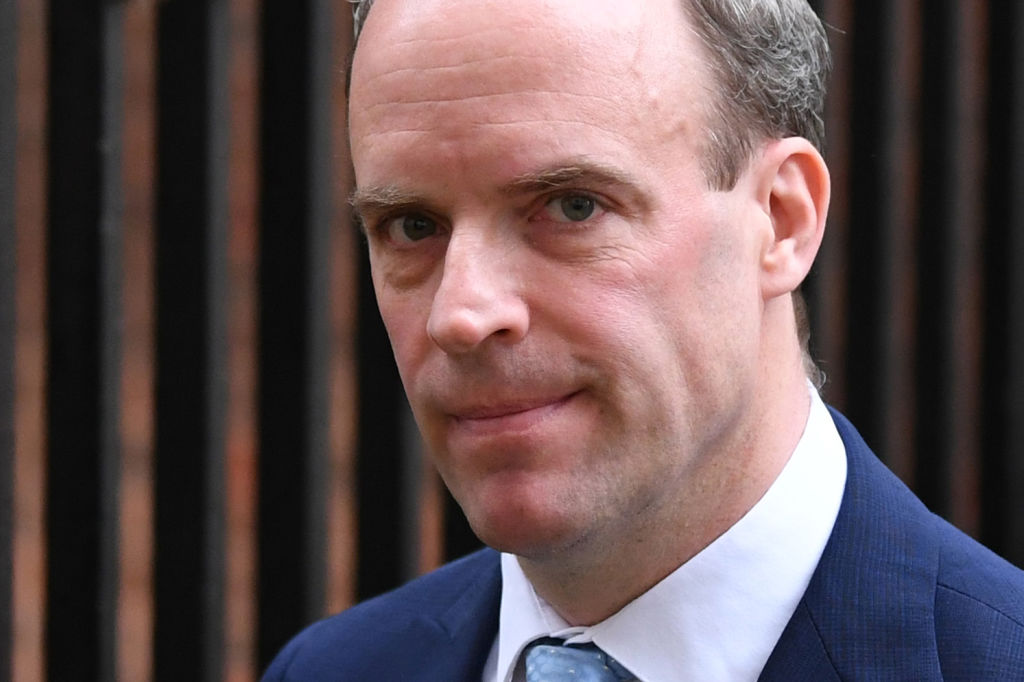On Monday evening, Britain’s Prime Minister Boris Johnson, diagnosed 11 days’ earlier with COVID-19 and taken to hospital for ‘tests’ on Sunday afternoon after showing ‘persistent’ symptoms, was moved into an Intensive Care Unit at St Thomas’s Hospital in London. A brief statement from 10, Downing Street described Johnson’s ‘worsened’ condition and confirmed that Johnson, who had continued working in isolation throughout his illness, had asked foreign secretary Dominic Raab to ‘deputize for him where necessary’.
Forty-six-year-old Raab is also the first secretary of state, the most senior member of Johnson’s cabinet. He has remained in isolation in recent weeks as the ‘designated survivor’, should Johnson and other senior ministers be unable to work. Johnson is a globally recognizable figure, as much a part of Britain’s international image as a member of the royal family. Raab, meanwhile, is a stranger to most foreign observers of British politics.
A karate black-belt and former Foreign Office lawyer working to prosecute war criminals, Raab entered the House of Commons in 2010. He clashed with Theresa May, then home secretary, in 2011 after calling some feminists ‘obnoxious bigots’ — May accused him of ‘gender warfare’ — then entered David Cameron’s cabinet as junior justice minister in 2015.
Raab campaigned enthusiastically for Brexit in the 2016 referendum. For this, or for his 2011 run-in, Cameron’s successor Theresa May sacked him upon becoming prime minister — only to return him to the cabinet in 2017 as middle-ranking justice minister. May’s rule was the least stable in British history, and Raab rose quickly: housing minister, a non-cabinet position, in January 2018, and then Brexit secretary in June 2018. His resignation in November 2018 was seen as a critical moment in the collapse of May’s authority.
Last year, Raab campaigned for Conservative leader. In a wide field of candidates, he survived into the second round, then swung his support behind Johnson. He was rewarded with the office of foreign secretary, one of the three ‘great offices of state’, and (effectively confirming him as deputy prime minister) the position of first secretary of state.
According to Popbitch, Raab’s ‘former staffers confessed in 2018 that they used to have a running contest between them to see how many a’s they could slip into his last name on official documents (they claim their record was five).’
Raab strongly favors Brexit, has written about the need to cut red tape and dependency, and is a keen proponent of a global Britain and its alliance with the United States. While Johnson styles himself in the ‘One Nation’ tradition of Benjamin Disraeli, Raab is more of a Thatcherite. Ironically enough, Raab, the son of a Czech Jewish refugee from Nazism, has become the first person of Jewish background to discharge a prime minister’s tasks since Disraeli left office in 1868.
Dominic Green is Life & Arts editor of Spectator USA.

























